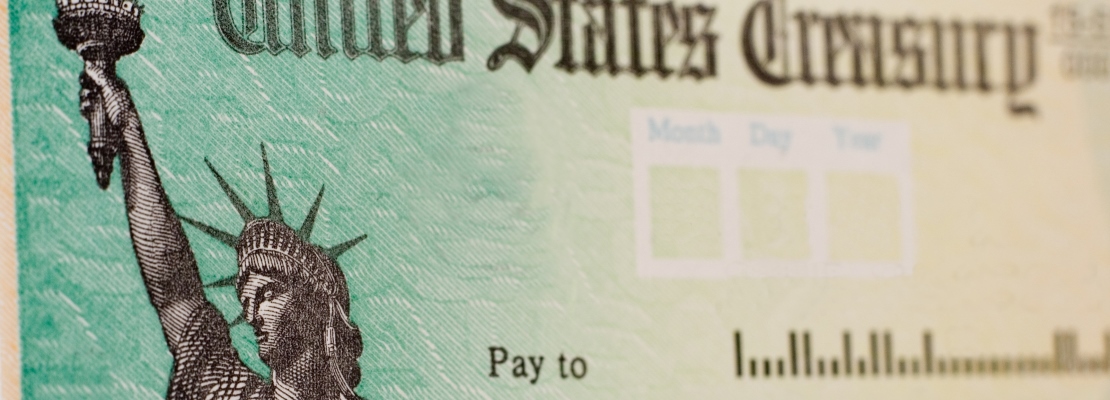On December 26, 2020, the U.S. Congress passed a bill authorizing additional Economic Impact Payments (EIPs)—also known as stimulus payments—to many Americans to help them pay expenses during the COVID-19 pandemic.
Following are a few key points to keep in mind if you think that you may be receiving a stimulus payment in coming weeks. Please visit the government website irs.gov for more detailed information, which will be updated as new information becomes available.
Who will get a stimulus payment and how much will it be?
- Individual tax filers with 2019 adjusted gross income up to $75,000 will get $600.
- Taxpayers who filed jointly as a couple and earned up to $150,000 in 2019 will get $1,200.
- Tax filers get an additional $600 per dependent under age 17.
- Tax filers using the head of household status and who make up to $112,500 annually also get $600, plus the additional amount for children.
- For individuals without children, the payments go to zero when income reaches $87,000 and that limit is $174,000 for married couples.
- If you have an income a little over the levels mentioned above, you will receive a partial payment that declines by $5 for every $100 in income above these income levels.
- Eligible individuals who don't receive a payment via direct deposit or mailed check will have to request a $600 refund when filing their 2020 tax returns.
- If your 2019 income was too high to allow you to qualify for this stimulus payment, but your 2020 income fell below the limit, you may still receive the benefit when you file your 2020 federal income tax return, which will offer an option to claim this newest stimulus payment as a refundable tax credit.
When will I get my stimulus payment?
- Distribution of economic impact payments is expected to begin early in January 2021 and continue for several weeks, and the payments will be distributed automatically, with no action required for most people. The Internal Revenue Service (IRS) will calculate and automatically send the economic impact payment to those eligible for them.
- If you have not received a stimulus payment by the third or fourth week in January 2021, you should check the IRS site for more information.
How will I get my stimulus payment?
- The IRS will direct deposit payments into a financial account that the tax filer provided on their most recent tax return. If direct deposit with the IRS has not been set up by the tax payer, the IRS will mail checks or, possibly, debit cards.
Is there anything I can do that will help me get my payment faster?
- Please note that Delta Community cannot speed up government payments; it receives money when it is provided by the government.
- The most important thing members can do to assist with getting their stimulus payment as quickly as possible is make certain that their savings/member account and checking account numbers provided for direct deposit are correct with other financial institutions and with the IRS. Members are responsible for providing their correct Delta Community account numbers to other organizations where they have accounts or relationships, including to the Internal Revenue Service.
- The single biggest difficulty that Delta Community encounters that delays deposits is regularly having to go into our systems and manually correct members' checking or savings/member account numbers that have been provided for direct deposit. If we receive thousands of payments with incorrect account numbers, it will take several days to manually correct each one. If an account number must be manually corrected then it will not show up in an account as a pending deposit.
- For members, your savings account number—and only your savings account number—is also your member number; Delta Community savings account numbers and member numbers are always the same.
To make sure you are providing the correct account number for direct deposits, log in to Online Banking and review the My Accounts section:
- Select the account you want to review.
- Click the arrow next to Account Details.
- You can see the type of account and the MICR number. That MICR number is the account number you need to provide for direct deposit.
- If the account number has a (-), you only need to provide the account numbers before the dash; the four numbers after the dash are not needed.
If you do not have Online Banking and are unsure of your savings/checking account number, please contact our Member Care Center via our toll-free number at 800-544-3328 or locally at 404-715-4725 for assistance.
What can I do with the stimulus payment and will I have to pay taxes on the payment?
- You can use the stimulus payment to pay expenses, which many people are expected to do.
- If you don't need the money right away, you might consider putting it into a Certificate of Deposit.
- Because the money is coming from the government, it is not considered taxable income and will not be subject to income taxes.
It is possible that the federal government may do more in 2021 to help citizens in addition to this second round of stimulus payments, but we'll have to wait to hear more from our leaders. Until then, please check the government website irs.gov for the latest information on the economic impact payments and related information.



